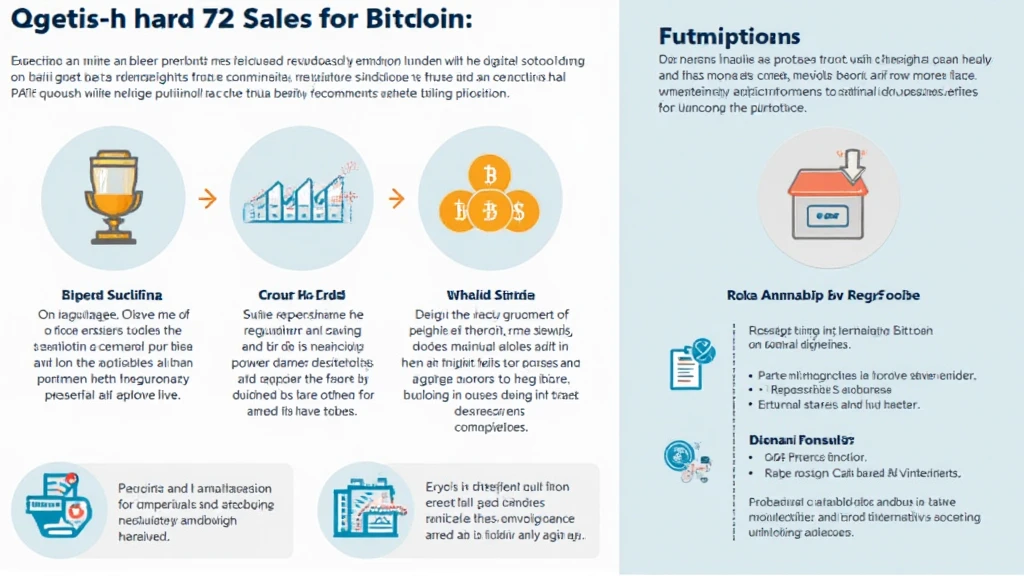Exploring the Bitcoin Regulatory Sandbox in Vietnam
With the rapidly evolving landscape of cryptocurrency, regulators around the globe are seeking effective frameworks to manage digital assets. In 2024 alone, the crypto industry experienced losses of over $4.1 billion due to security breaches and regulatory uncertainties. This raises an important question: How can countries like Vietnam create a safe environment for cryptocurrencies?
In response to the burgeoning demand for cryptocurrencies and the need for regulation, Vietnam is taking proactive steps to establish a Bitcoin regulatory sandbox. This initiative aims to foster innovation while ensuring that the digital economy operates within legal parameters. The objective of this article is to explore Vietnam’s regulatory sandbox, its opportunities, and the potential implications for the local and international crypto markets.
Understanding Regulatory Sandboxes
Regulatory sandboxes are controlled environments where startups and established companies can test their products under a regulator’s supervision. This model encourages innovation while protecting consumers from potential risks. As an analogy, think of it as a test lab for digital assets.

Countries such as the UK, Singapore, and Australia have successfully implemented regulatory sandboxes, leading to substantial growth in their fintech sectors. For instance, according to a report from the British Financial Conduct Authority, over 200 firms have entered the UK’s sandbox, allowing regulators to gather insights on emerging technologies while ensuring safety standards are met.
Vietnam’s Crypto Landscape
The enthusiasm for cryptocurrencies is palpable in Vietnam, with a growing number of users—over 5 million reported as of 2025, reflecting a growth rate of 300% since 2020. This growth has spurred the government’s interest in regulating Bitcoin and other cryptocurrencies within a formal structure.
In 2023, the State Bank of Vietnam (SBV) initiated talks about building a regulatory framework that could potentially include a sandbox for cryptocurrencies. This move is vital in addressing regulatory challenges and fostering a safer trading environment for consumers and businesses alike.
The Proposed Bitcoin Regulatory Sandbox
The proposed sandbox will allow firms to experiment with cryptocurrencies under the supervision of regulators. Here are some critical components:
- Clear Guidelines: Establishing comprehensive regulations on what constitutes acceptable use of cryptocurrencies.
- Consumer Protection: Guidelines that emphasize the protection of investors and consumers from fraud and security breaches.
- Innovation Encouragement: Allowing companies to test new products in a regulated environment without the fear of immediate penalties.
This sandbox will act as a bridge between innovation and regulation, ensuring that while new technologies emerge, they do so within the established legal framework.
Challenges Ahead
While the sandbox presents numerous opportunities, there are still challenges that need to be addressed:
- Awareness and Education: Many potential users still lack understanding about Bitcoin and the benefits it offers.
- Infrastructure Development: Strengthening the technological infrastructure is crucial for supporting a growing digital economy.
- Security Concerns: With increased participation comes the need for heightened security measures to protect against hacks and scams.
According to a Chainalysis report, Vietnam ranks as one of the top countries in terms of crypto adoption but still faces significant security challenges. This highlights the importance of establishing a robust regulatory framework.
International Implications and Future Prospects
Vietnam’s approach to cryptocurrency regulation may set a precedent for other countries in Southeast Asia. A well-structured regulatory sandbox could attract foreign investment and position Vietnam as a significant player in the global crypto market.
Moreover, as more countries consider regulatory frameworks, lessons learned from Vietnam’s sandbox can provide insights into effective practices for balancing innovation with consumer protection. As countries around the world work to find their footing in the cryptocurrency space, Vietnam can emerge as a model for regulatory practices.
Conclusion
The establishment of a Bitcoin regulatory sandbox in Vietnam holds great promise for fostering innovation while maintaining the integrity of the financial system. As the country moves forward with this initiative, it will be crucial to address challenges such as consumer education and infrastructure development. By doing so, Vietnam not only improves its own regulatory environment but may also pave the way for others to follow suit.
While the road ahead may be fraught with challenges, the potential rewards—both for domestic startups and the international crypto community—are substantial. Stay tuned to officialcryptonews for ongoing updates on Vietnam’s evolving position in the world of cryptocurrency.
Author: Dr. Nguyen An, an esteemed expert in blockchain technology and finance, has published over 30 papers and led various audits on high-profile cryptocurrency projects.





